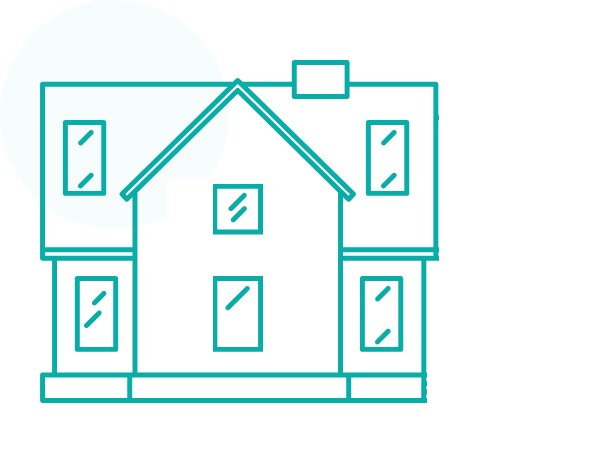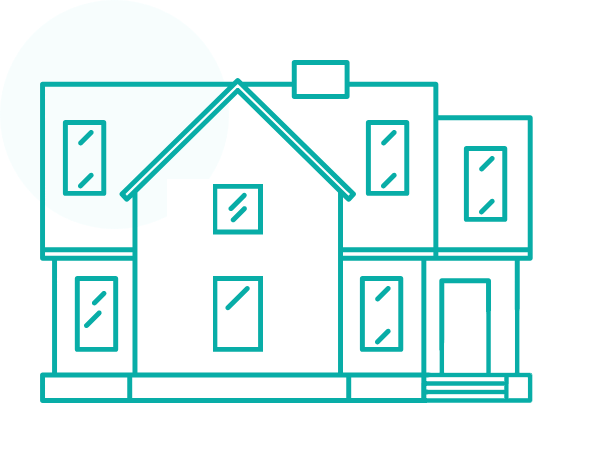Technological improvements and shifting client expectations are causing a drastic revolution in the property management industry. Adopting more contemporary property management solutions is not only a fad; it’s a need if you want to thrive currently when tenant contentment, security, and efficiency are valued highly. Upgrading to this state-of-the-art technology might help property management companies better adapt to the changing needs of their customers and the market. According to a well-known industry study, using this modern technology is essential for streamlining operations, bolstering security protocols, and improving overall tenant experiences (Altohami et al., 2021). The future of property management and the many ways that modern solutions have enhanced the sector are the main topics of this introduction, which also serves as a foundation for the remainder of the piece.
The Evolution of Property Management
The story of innovation and transformation from outdated to modern property management techniques is motivational. Although the early manual procedures used in property management, which included a lot of paperwork and in-person contacts, may have been effective for smaller enterprises, they were not scalable or effective enough for bigger ones. As to the 2019 Porter et al., the shift started with the advent of digital technology, which brought with it basic computerized systems for rent collection and maintenance management. During this period, the industry made its initial digital moves, but these were just the start of a far bigger change.
Modern technology brought about a real revolution in the property management sector. According to Altohami et al. (2021), current systems have changed operations via the use of automation and process simplification. The industry is moving toward a more tenant-centric, data-driven, and efficient management approach, and this shift isn’t only technological. According to Yubo et al. (2023), the main drivers behind these improvements are optimizing asset performance and improving the tenant experience. The Internet of Things (IoT) and artificial intelligence (AI) will make property management even more proactive, predictive, and customized to meet the constantly shifting needs of the sector, according to Rane (2023).
Detailed Reasons to Upgrade
1. Automation and Efficiency
As automation has become more prevalent in modern property management systems, operational efficiency has drastically changed. With conventional procedures, manual treatments are slow and prone to errors, which is a genuine headache. According to Altohami et al. (2021), contemporary systems include automation into a wide variety of procedures, such as maintenance scheduling, tenant screening, and managing leases. This automation is revolutionary since it will result in significant time savings. Accounting time and human error are reduced when financial operations are simplified by automated rent collection and financial reporting, for example. Greater productivity and financial gain are the ultimate results of efficiency since it frees up property managers’ time and energy to concentrate on more strategic, higher-level undertakings.
2. Enhanced Security Measures
In this era of vital digital infrastructure, modern property management systems have robust security mechanisms to protect sensitive data. Sophisticated security mechanisms play a major role in current property management systems, according to Yubo et al. (2023). These systems restrict access to authorized users, encrypt data while it’s at rest, and update software often to guard against emerging cyberthreats. This comprehensive security architecture ensures the confidentiality and integrity of tenant data and financial transactions, fostering trust and reliability in property management operations. These solutions proactively meet the growing regulatory demands for data privacy and security in the real estate sector by guarding against data breaches.
3. Improved Tenant Relations
Tenant satisfaction and retention are significantly impacted by contemporary property management systems. According to Porter et al. (2019), these systems provide a number of features, such as online payment gateways, efficient maintenance request tracking, and streamlined communication channels. These features enhance the tenant experience by optimizing and enhancing the responsiveness of routine chores. When tenants are able to request maintenance online, pay their rent online, and communicate with property management efficiently, they have a better and more involved living experience. Better occupancy levels and lower vacancy rates are critical components of successful property management. Tenants who are happy with the property are more inclined to recommend it to others and renew their leases.
4. Cost-Effectiveness
There will be monetary benefits to switching to more contemporary property management software. These solutions optimize several parts of management, which results in substantial savings, as pointed out in the Automated procedures reduce operating expenses by reducing the need for considerable human labour. Timely interventions may be made possible by these technologies to promote predictive maintenance, which in turn prevents concerns from becoming costly repairs. In addition to reducing the possibility of expensive mistakes and legal issues, the efficiency and precision of current technology further contribute to total cost reductions. Investing in these systems is a smart move for property owners and managers since the long-term financial advantages aren’t limited to just lower costs; they also include higher property values and better investment returns.
5. Scalability and Flexibility
Modern property management systems have the advantage of being both flexible and scalable. In the face of ever-increasing property and portfolio management demands, conventional approaches can become inadequate. Success in development is highly dependent on the ability to efficiently manage several properties via a unified platform, as stated in Rane (2023). In order to accommodate an increasing number of properties without compromising functionality, modern systems are specifically designed to expand with the firm. Their adaptable design allows them to fulfill the unique needs of each property and provide the best possible management for each one. Scalability and flexibility like these are lifesavers for property management firms who are aiming to expand their portfolios without sacrificing efficiency or service quality.
FAQs Section
Q: How do modern property management solutions enhance efficiency?
By automating a variety of operations, modern property management systems greatly improve efficiency and provide simplified workflows and time-saving features. Altohami et al. (2021) claims that these technologies automate a number of processes, including scheduling maintenance, vetting potential renters, and contract renewals. Thanks to technology, property managers no longer need to do as much physical labour, allowing them to concentrate on the more strategic parts of their jobs. Additionally, decision-making is improved by using sophisticated analytics, which increases operational performance.
Q: What are the security benefits of modern property management solutions?
Safety is the first priority in all modern property management systems. According to Yubo et al. (2023), these systems provide state-of-the-art security techniques via the use of safeguards including data encryption and secure access limitations. Financial information and private tenant information are protected from prying eyes and data breaches by these protections. Every aspect of property management operations is protected since these systems are updated often to stay abreast of emerging cybersecurity risks.
Q: How can property management software improve tenant satisfaction?
Proper property management software is essential if you want your renters to be pleased. According to Porter et al. (2019), the availability of services like online payment options, maintenance request tracking, and effective communication channels makes renting easier and more responsive for tenants. When these solutions facilitate tenants’ ability to promptly address issues and get essential services, they increase the likelihood that they will be pleased and renew their leases.
Q: What are the cost benefits of upgrading to a modern system?
Upgrading to a more modern property management system may lead to significant financial advantages. According to Farzaneh et al. (2021), these solutions streamline processes and cut down on human involvement, resulting in lower operating expenditures. Additional advantages of predictive maintenance and efficient resource management include reduced repair costs and wasted resources. These significant cost reductions imply that, in the long run, it would be beneficial to invest in state-of-the-art property management systems.
Conclusion
Technological improvements and rising client expectations are causing a major transition in the property management industry. Simplifying processes, strengthening security measures, and enhancing tenant experiences all depend on modern technologies. The shift from outdated to modern techniques has led to automation, efficiency, enhanced security measures, and a focus on tenant satisfaction, safety, and productivity. Emerging technologies like AI and IoT will enable property management to become proactive, predictive, and tailored to meet industry demands. Upgrading to modern solutions will help property managers focus on strategic, higher-level projects and meet regulatory demands for data privacy and security. Contemporary property management systems significantly impact tenant satisfaction and retention by offering features like online payment gateways, efficient maintenance request tracking, and streamlined communication channels. These features enhance the tenant experience, leading to better occupancy levels and lower vacancy rates. Modern systems also offer cost-effectiveness, optimizing management processes and reducing operating expenses. They are scalable and flexible, allowing property management firms to expand their portfolios without compromising efficiency or service quality. They also provide security benefits, ensuring financial and private tenant information is protected. Modern property management system investments may have a major positive financial impact, as they can increase investment returns, decrease operating expenses, and enhance tenant satisfaction.
Call to Action
Embrace the future of property management by using state-of-the-art technology now. The benefits in efficiency, security, tenant satisfaction, and cost savings are clear, and industry data from sources like Farzaneh et al. (2021) further supports this decision. Ensure that your property management protocols are current. Select a system that combines advanced technology and full functionality to stay ahead in the cutthroat business. Get in contact with a provider of up-to-date solutions right now to start enhancing your property management experience.
References:
Altohami, A. B. A., Haron, N. A., Ales@ Alias, A. H., & Law, T. H. (2021). Investigating approaches of integrating BIM, IoT, and facility management for renovating existing buildings: A review. Sustainability, 13(7), 3930.
Yubo, S., Ramayah, T., Hongmei, L., Yifan, Z., & Wenhui, W. (2023). Analysing the current status, hotspots, and future trends of technology management: Using the WoS and scopus database. Heliyon.
Porter, L., Fields, D., Landau-Ward, A., Rogers, D., Sadowski, J., Maalsen, S., … & Bates, L. K. (2019). Planning, land and housing in the digital data revolution/the politics of digital transformations of housing/digital innovations, PropTech and housing–the view from Melbourne/digital housing and renters: disrupting the Australian rental bond system and Tenant Advocacy/Prospects for an Intelligent Planning System/What are the Prospects for a Politically Intelligent Planning System?. Planning Theory & Practice, 20(4), 575-603.
Farzaneh, H., Malehmirchegini, L., Bejan, A., Afolabi, T., Mulumba, A., & Daka, P. P. (2021). Artificial intelligence evolution in smart buildings for energy efficiency. Applied Sciences, 11(2), 763.
Future of Real Estate Management Journal. (2023). Predicting Tomorrow: The Role of AI and IoT in Property Management. Future of Real Estate Management Journal.
Rane, N. (2023). Integrating leading-edge artificial intelligence (AI), internet of things (IOT), and big data technologies for smart and sustainable architecture, engineering and construction (AEC) industry: Challenges and future directions. Engineering and Construction (AEC) Industry: Challenges and Future Directions (September 24, 2023).









